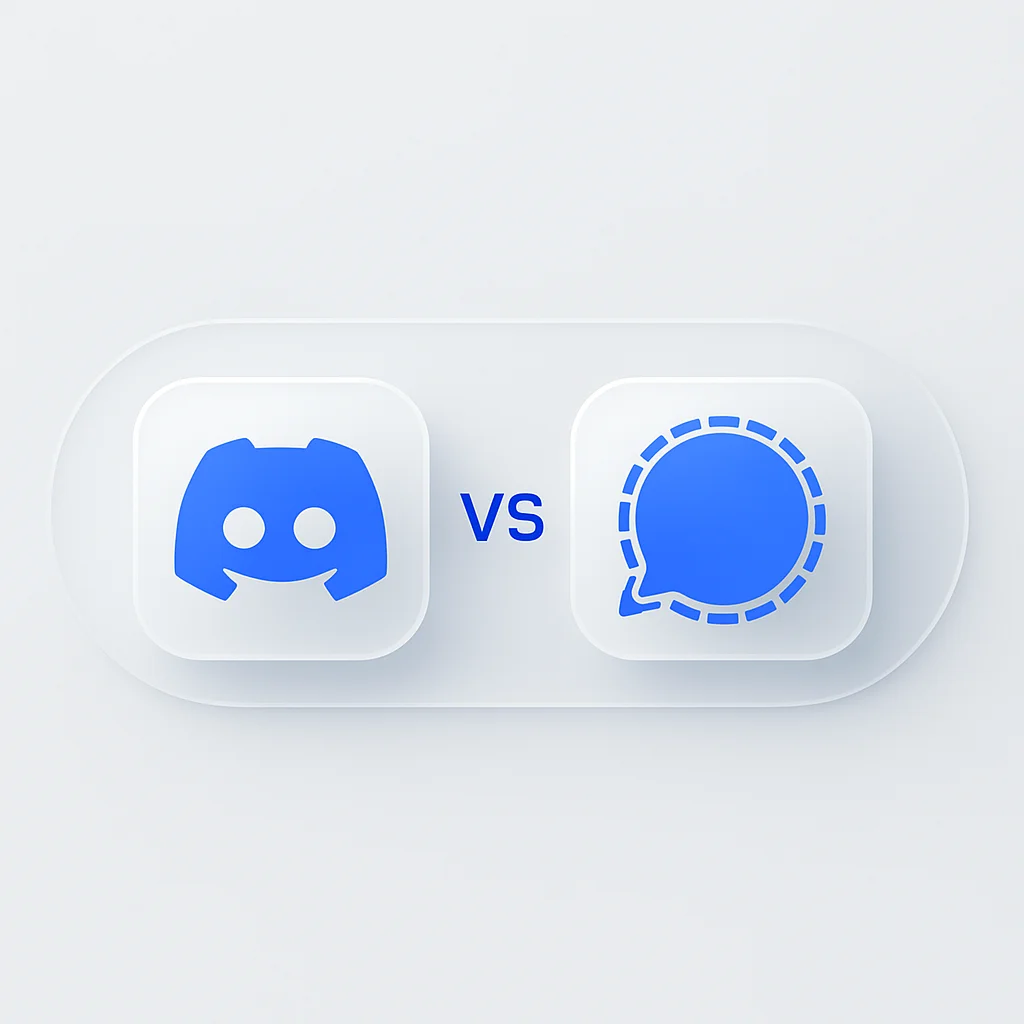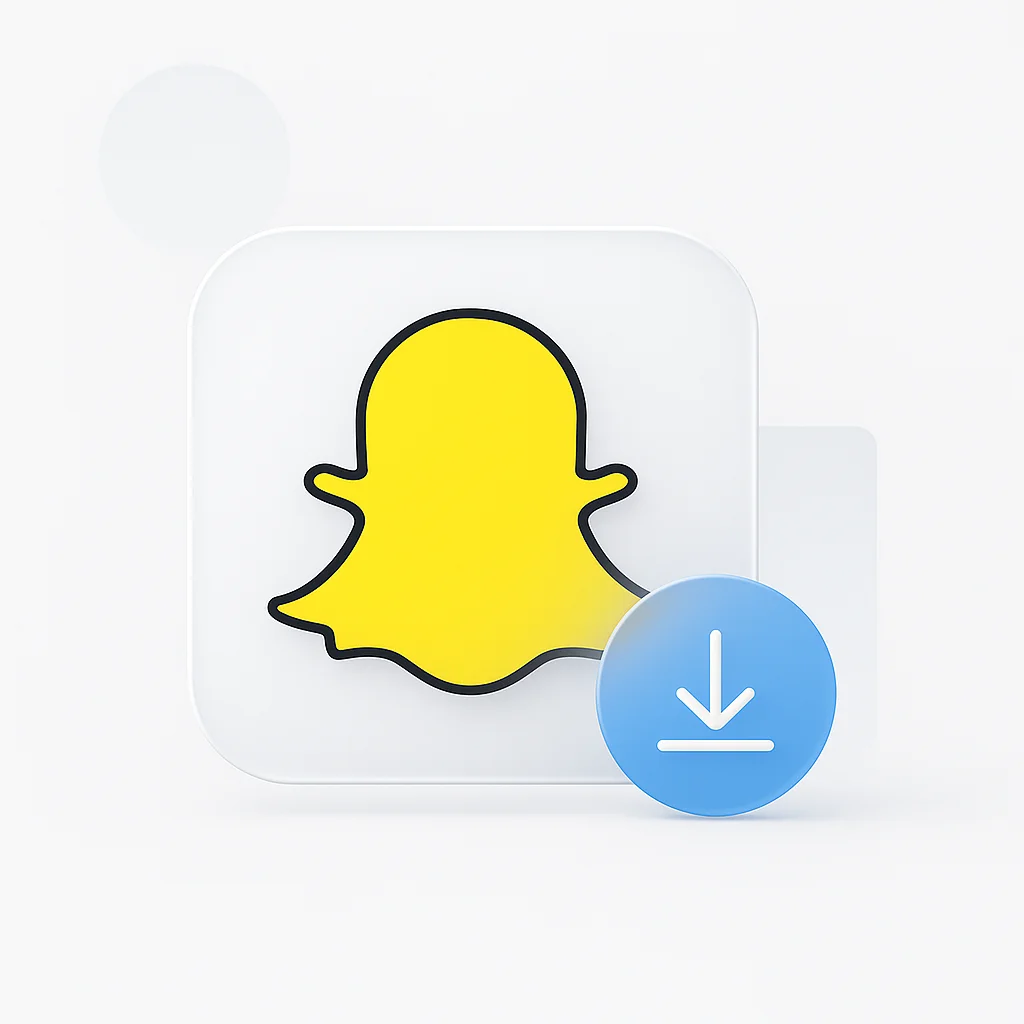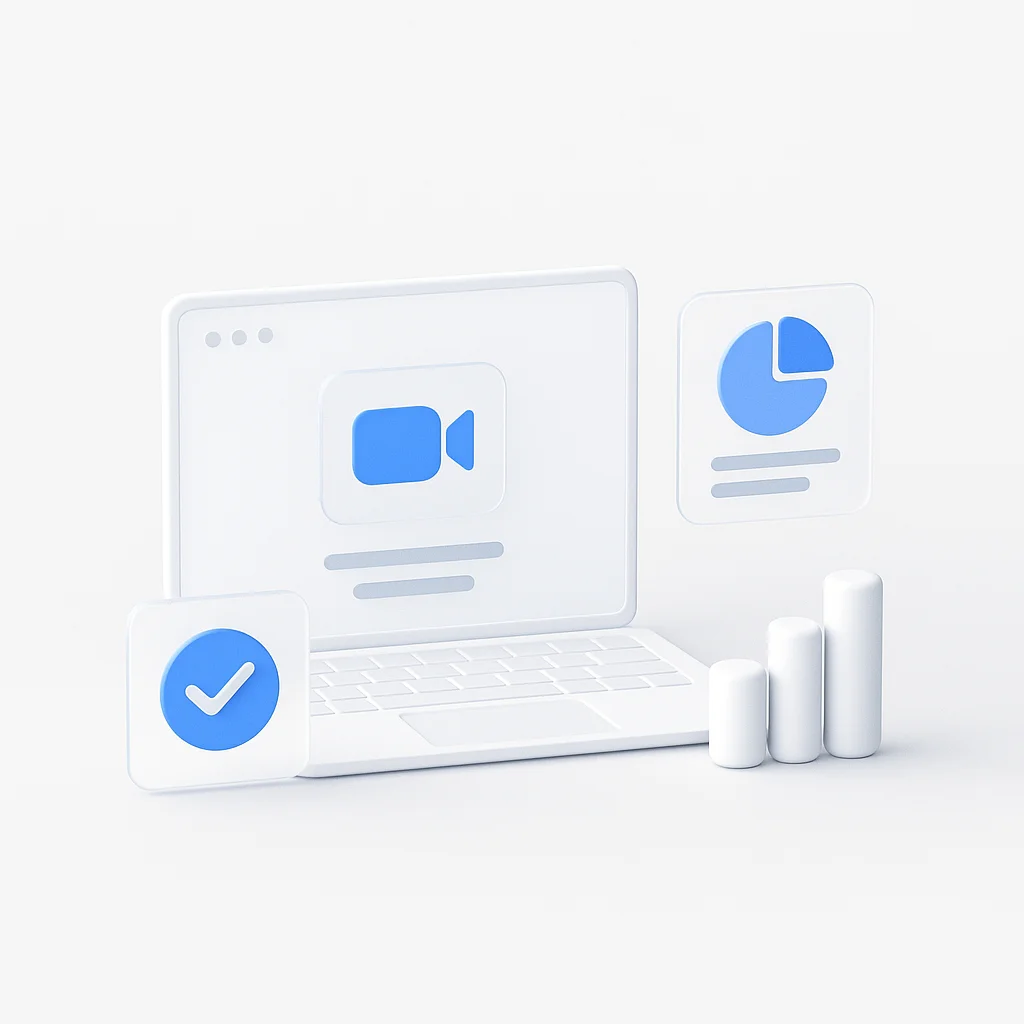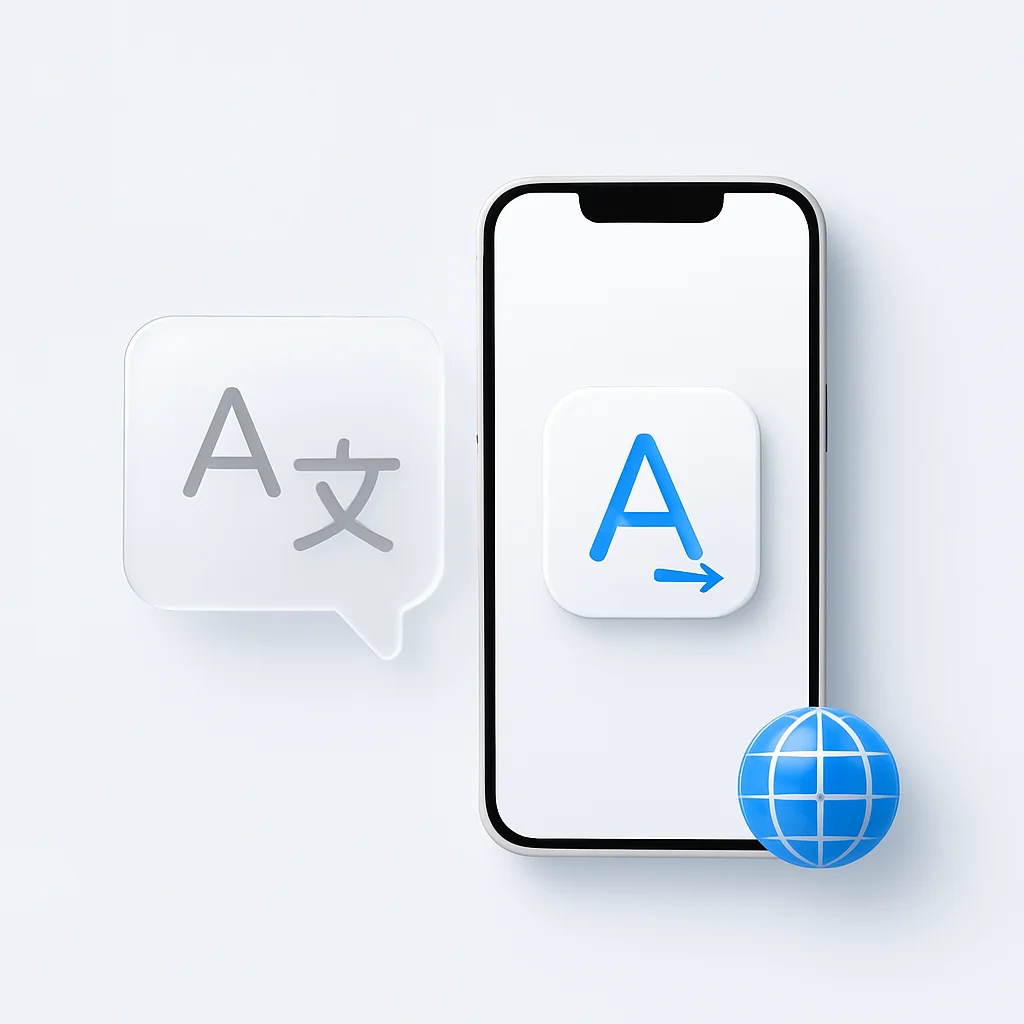In the digital age, choosing the right communication platform is more critical than ever. Two giants dominate different corners of the market: Discord, the king of community and gaming, and Signal, the champion of privacy and security. But which one is right for you in 2026?
This definitive, data-driven comparison of Discord and Signal will help you choose the right platform based on your specific goals. For users looking to understand the nuances of digital privacy, understanding these differences is crucial.
The Winner's Circle: Which Platform is Best in 2026?
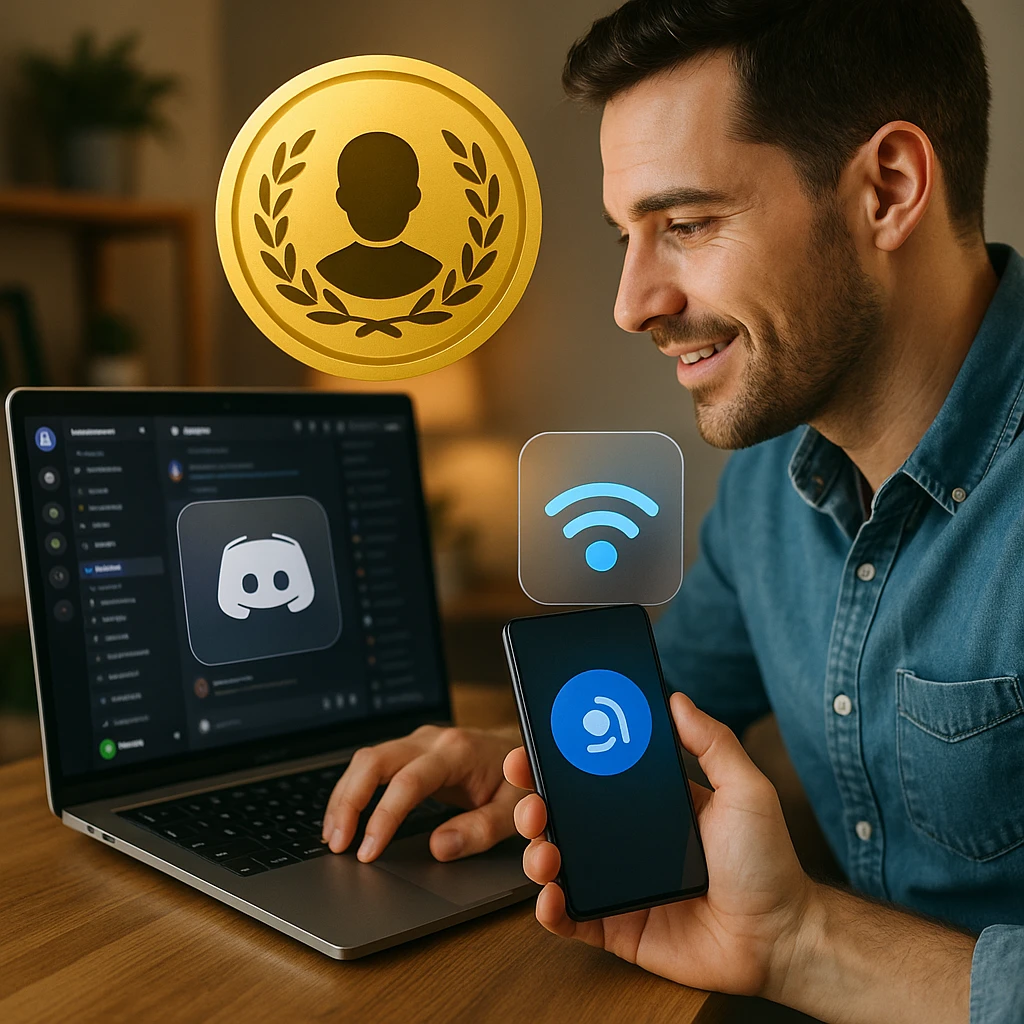
| Category | 🥇 Winner | 🥈 Second | Why Winner Leads |
|---|---|---|---|
| 🔒 Security & Privacy | Signal | Discord | End-to-end encryption by default for everything. |
| 👥 Community & Groups | Discord | Signal | Massive servers, roles, bots, and moderation tools. |
| ✨ Features & Versatility | Discord | Signal | Screen sharing, video calls, rich media, and bots. |
| ⭐ Simplicity & Ease of Use | Signal | Discord | Clean, focused interface similar to standard messengers. |
| 📞 Call Quality | Discord | Signal | Superior voice/video quality, especially in large groups. |
Quick Decision Guide:
Need Absolute Privacy? → Start with Signal for secure chats.
Building a Community? → Focus on Discord for its robust tools.
Want Simplicity? → Signal is the clear winner for ease of use.
Need All the Features? → Use Discord for screen sharing, bots, and more.
The Showdown: Discord vs. Signal Head-to-Head
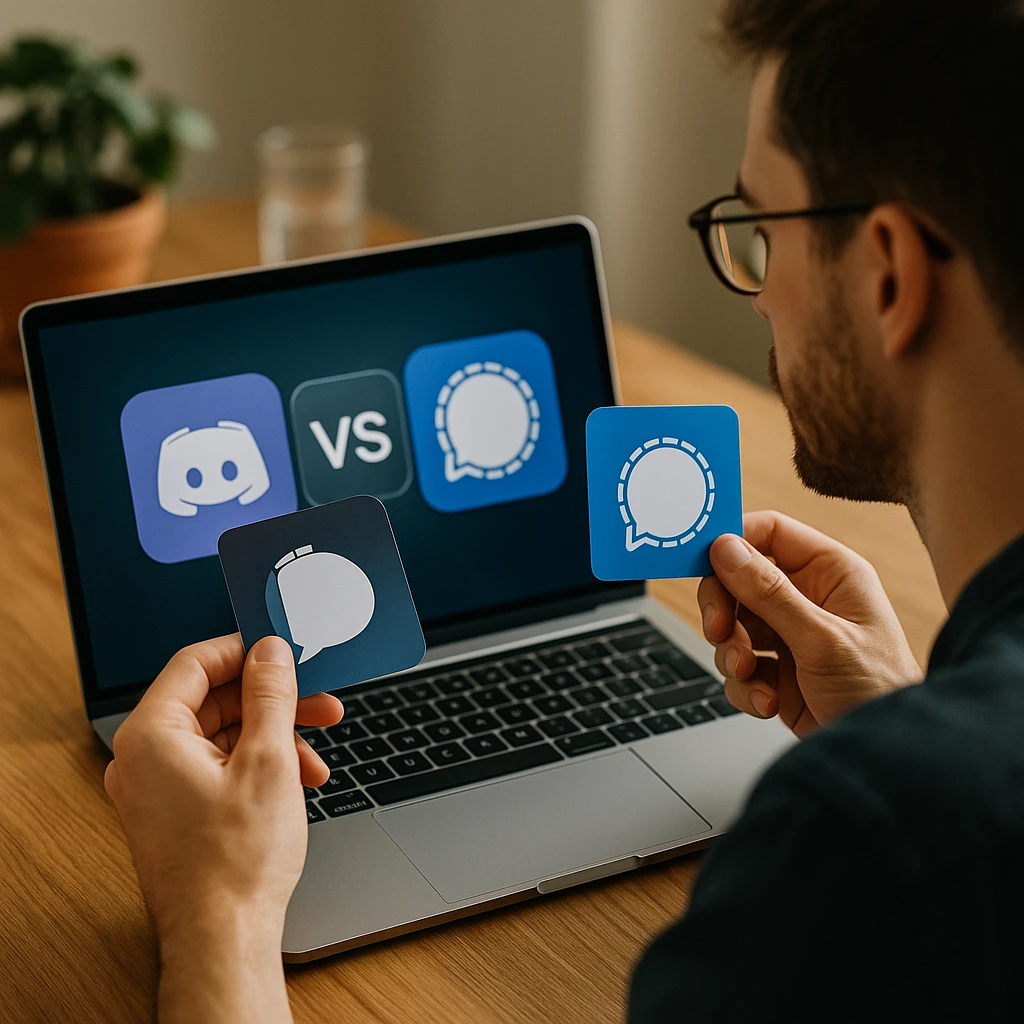
Round 1: Security & Privacy
Gold Standard Encryption: Signal's reputation is built on its open-source Signal Protocol. It offers mandatory end-to-end encryption (E2EE) for all messages and calls. This means only the sender and receiver can access the content. Not even Signal can see your messages.
Minimal Data Collection: Signal only stores the bare minimum data required for the service to function (your phone number, registration date). It doesn't collect metadata or user data for advertising.
Encryption in Transit: Discord encrypts data between your device and its servers. However, it does not offer E2EE for messages in servers. Discord has access to your server conversations for moderation and safety purposes.
Data Collection: Discord collects more user data, including IP addresses, device information, and how you use the service. This data is used for service improvement and analytics.
Round 2: Features & Community Building
The Community Hub: Discord excels at building and managing large communities. Servers can host thousands of users, organized into text and voice channels. Features like user roles, permissions, moderation bots, and custom emojis make it a powerful tool for any group. For organizations that need advanced stability or customization, combining Discord's features with a dedicated server setup can offer better control and performance for community management.
Rich Features: It's more than a messenger. Discord offers high-quality screen sharing, video conferencing, file sharing (with size limits), and a rich ecosystem of bots for everything from music to server management.
Focused Communication: Signal offers a clean, straightforward messaging experience. It supports text, voice messages, GIFs, stickers, and file sharing. The focus is on doing the basics of communication exceptionally well and securely.
Growing Features: Signal has added features like Stories and scheduled messages, but its feature set remains intentionally lean compared to Discord to prioritize simplicity and security.
Round 3: Pricing & Business Use
Completely Free: Signal is 100% free with no premium tiers, subscriptions, or hidden costs. This is made possible by donations and grants, ensuring the platform remains accessible to everyone.
Business Limitations: Signal lacks dedicated business features like team management, admin controls, or enterprise integrations. It's primarily designed for personal and small group use.
Freemium Model: Discord offers a robust free tier with optional Nitro subscriptions ($9.99/month) for enhanced features like higher quality streaming, custom emojis, and larger file uploads.
Business Features: Discord provides server boosting, custom roles, advanced moderation tools, and analytics that make it suitable for business communities, though it's not a dedicated business platform.
Round 4: Mobile Experience & Cross-Platform Support
Mobile-Native Design: Signal was built mobile-first, offering an intuitive touch interface that feels natural on smartphones. The app is lightweight and optimized for mobile data usage.
Cross-Platform Sync: Signal offers desktop apps for Windows, macOS, and Linux, but they require a mobile device for initial setup. Messages sync seamlessly across all platforms.
Desktop-Optimized: Discord was originally designed for desktop gaming communities, though the mobile app has improved significantly. The interface can feel cramped on smaller screens.
Universal Access: Discord works on virtually every platform: Windows, macOS, Linux, iOS, Android, and web browsers. All features are available across platforms with consistent experience.
Round 5: File Sharing & Media Support
Generous Limits: Discord allows file uploads up to 25MB on free servers and 500MB on boosted servers. Supports images, videos, documents, and executables.
Rich Media: Excellent support for images, videos, GIFs, and embeds. Files are stored permanently unless manually deleted by users or moderators.
Secure Sharing: Signal supports file sharing with end-to-end encryption. File size limits vary by platform but are generally smaller than Discord (typically 100MB max).
Privacy-First: Files are automatically deleted after a set period (configurable), and there's no permanent storage on Signal's servers. Perfect for sensitive document sharing.
Round 6: Integration & Ecosystem
Rich Ecosystem: Discord boasts thousands of bots and integrations for music, gaming, productivity, and entertainment. Popular integrations include Spotify, YouTube, Twitch, and various game APIs.
Developer-Friendly: Discord provides comprehensive APIs and webhooks, making it easy for developers to create custom bots and integrations for specific use cases.
Minimal Integrations: Signal intentionally limits third-party integrations to maintain security and privacy. No official API or bot support to prevent potential security vulnerabilities.
Focus on Core: Signal's philosophy prioritizes security over extensibility, ensuring the platform remains secure and private without external dependencies.
The Final Verdict: Which Platform Should You Choose in 2026?
🛡️ For the Privacy-Conscious User
If your top priority is secure, private conversations with individuals or small groups, Signal is the best choice. It's perfect for journalists, activists, and anyone who values confidentiality above all else.
Best for: One-on-one chats, family groups, secure work communication
🎮 For Community Builders & Gamers
If you want to build or join a large community, run a book club, or have a feature-rich environment for your friend group, Discord is unmatched. Its tools for organization and engagement are top-tier.
Best for: Gaming communities, online forums, large social groups, project collaboration
💼 For Business & Professional Use
While not designed for business, Discord's robust features, file sharing, and community tools make it suitable for professional communities, remote teams, and industry networking.
Best for: Professional communities, remote team collaboration, industry networking, client communication
📱 For Mobile-First Users
If you primarily communicate on mobile devices and value a clean, intuitive interface, Signal's mobile-optimized design provides the best user experience.
Best for: Mobile-heavy users, quick messaging, on-the-go communication
Frequently Asked Questions
Can Discord be made more private?
You can enhance your privacy on Discord by adjusting settings: disable data collection for personalization, be mindful of what you share, and use a VPN. However, it will never match Signal's level of privacy because it lacks default end-to-end encryption for server messages.
Is Signal good for large groups?
Signal supports group chats with up to 1,000 members, which is suitable for most large groups. However, it lacks the sophisticated management and moderation tools of Discord, making it less ideal for massive, public-facing communities.
Which app is better for video calls?
Discord generally offers better video call quality and features, especially for multiple participants and screen sharing. Signal's video calls are secure with E2EE but can sometimes be less stable with weaker connections. For one-on-one private calls, Signal is great. For group calls or streaming, Discord is superior.
Can I use both platforms simultaneously?
Absolutely! Many users maintain both platforms for different purposes. Use Signal for sensitive personal communications and Discord for community engagement and social activities. This approach gives you the best of both worlds: maximum privacy when needed and rich features for community building.
Which platform is better for file sharing?
Discord offers larger file size limits (up to 500MB with Nitro) and permanent storage, making it better for sharing large files and media. Signal provides secure, encrypted file sharing with automatic deletion, making it ideal for sensitive documents that shouldn't be stored permanently.
Is Discord safe for business use?
Discord can be used for business, but with important caveats. It lacks enterprise-grade security features, compliance tools, and admin controls that dedicated business platforms provide. For casual team communication and community building, it works well. For sensitive business communications, consider dedicated enterprise solutions.
How do the platforms handle data breaches?
Signal's end-to-end encryption means that even if their servers were compromised, your messages would remain secure. Discord's encryption in transit means server breaches could potentially expose message content. However, Discord has robust security measures and has never experienced a major data breach.
Which platform has better mobile performance?
Signal is optimized for mobile with a lightweight app that works well on older devices and slower connections. Discord's mobile app is feature-rich but can be resource-intensive, especially when using voice/video features. For mobile-first users, Signal provides a smoother experience.
Technical Deep Dive: Architecture & Performance
Signal Protocol: Uses the open-source Signal Protocol (formerly TextSecure Protocol) for end-to-end encryption. This protocol has been adopted by WhatsApp, Facebook Messenger, and Google Messages.
Server Architecture: Minimal server infrastructure that only handles message routing. Messages are encrypted before leaving the device and remain encrypted in transit and storage.
Performance: Lightweight and efficient, designed to work well on older devices and slower connections. Minimal bandwidth usage due to focused feature set.
Real-Time Infrastructure: Built on WebSocket connections for real-time communication, supporting millions of concurrent users across thousands of servers.
Scalable Architecture: Distributed server infrastructure designed to handle massive scale, with servers located globally for optimal performance.
Performance: Optimized for high-bandwidth features like voice/video calls and screen sharing. Requires more resources but delivers richer experiences.
Privacy Settings & Customization
| Privacy Feature | Signal | Discord |
|---|---|---|
| Message Encryption | End-to-end by default | Encryption in transit only |
| Message Deletion | Automatic disappearing messages | Manual deletion only |
| Read Receipts | Configurable | Always visible |
| Online Status | Always private | Configurable |
| Data Collection | Minimal (phone number only) | Comprehensive analytics |
| Third-Party Access | None | Limited API access |
Real-World Use Case Scenarios
Signal Use Cases:
- Journalistic Communication: Secure source communication and whistleblower protection
- Healthcare Coordination: HIPAA-compliant patient communication (with proper setup)
- Legal Consultations: Attorney-client privileged communications
- Family Planning: Private family discussions and sensitive personal matters
- Activist Groups: Secure coordination for human rights and political activities
Discord Use Cases:
- Gaming Communities: Multi-game guilds, tournament organization, and team coordination
- Educational Groups: Study groups, online courses, and academic collaboration
- Content Creator Networks: YouTuber, streamer, and influencer communities
- Professional Networks: Industry-specific communities and networking groups
- Hobby Communities: Book clubs, art groups, music production, and crafting circles
Conclusion: The Right Tool for the Right Job
Choosing between Discord and Signal isn’t about which is “better,” but which is better for you. They are designed with fundamentally different philosophies.
Choose Signal when your message content is sensitive and privacy is non-negotiable.
Choose Discord when you need a powerful, feature-rich platform to connect and manage a community.
In 2026, many users find a place for both: Signal for close contacts and private matters, and Discord for their social and community life. Understanding their core strengths allows you to leverage the best of both worlds.
